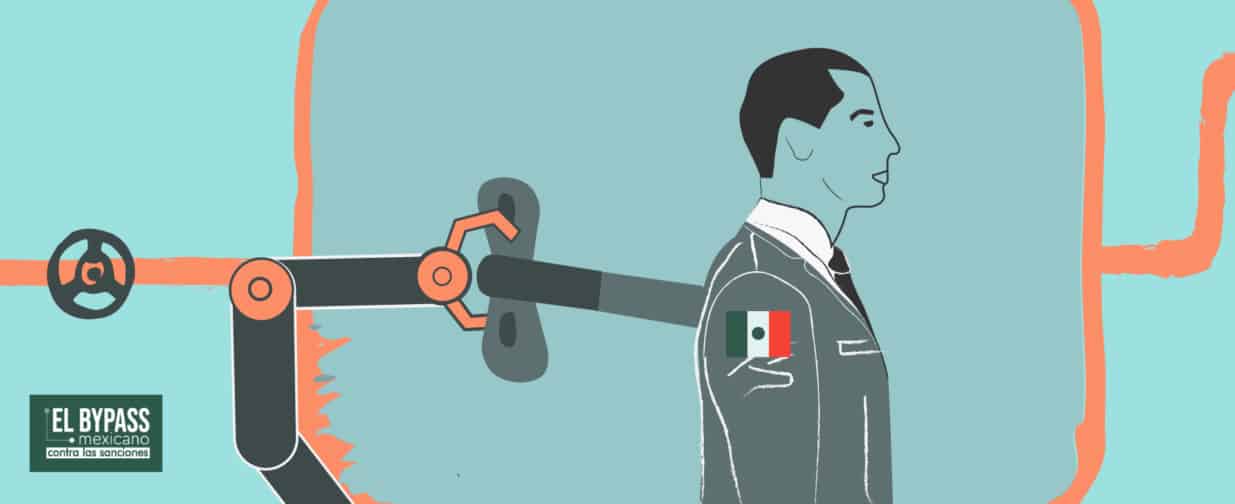
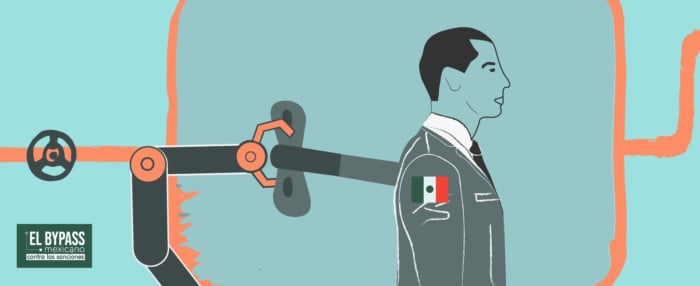
Leaked documents on Libre Abordo and the rest of the shady network that Joaquín Leal managed from Mexico, with tentacles reaching 30 countries, ―aimed to trade PDVSA crude oil and other raw materials that the Caracas regime needed to place in international markets in spite of the sanctions― show that the businessman claimed to have the approval of the Mexican government and supplies from Segalmex, an official entity. Beyond this smoking gun, there is evidence that Leal had privileged access to the vice foreign minister for Latin America and the Caribbean, Maximiliano Reyes.
|
Getting your Trinity Audio player ready...
|
Two years ago, a group of Mexican businessmen began to give shape to a shady business network, the initial facade of which was a humanitarian exchange with the Venezuelan government of food and tanker trucks for the oil that Caracas was finding difficult to sell due to international sanctions. The scheme would soon include the trade of other commodities, like coal or aluminum, though without the pretext of an exchange.
While the network developed and grew to handle millions of barrels of crude oil and thousands of tons of other goods, the mystery also persisted as to how much of it was known to the Mexican government of Andrés Manuel López Obrador, and whether it had his approval. The Financial Intelligence Unit (UIF) began an investigation a year ago into some of those involved, but no further progress has been made in the Mexican justice system. The agency’s action was not only insufficient but came too late, just when Washington was ready to impose financial sanctions against Joaquín Leal and other protagonists of the business.
However, an investigation by EL PAÍS and Armando.info, based on thousands of internal documents of the network, found evidence that at least one instance of the Mexican government could have acted as an ally of the network. As per papers of company Libre Abordo, it portrayed itself as a company designated by the Mexican government to carry out this type of transactions, and as a client of Segalmex —the food security agency of the Mexican State.
In addition, documents in possession of both media and interviews with several sources confirm a relationship between young businessman Joaquín Leal – at the apex of the plot – and the Undersecretary of Foreign Affairs for Latin America and the Caribbean, Maximiliano Reyes Zúñiga. The number two of the Foreign Ministry says in his defense that, as part of his responsibility, it is essential to support “every Mexican company, regardless of its name, regardless of its political or partisan position.” “We assume that the businessmen who approach us do so in good faith and wish to have better economic ties in the region,” adds Reyes in response to this report.
“Libre Abordo was appointed by the Mexican government to join the humanitarian oil-for-food exchange program with Venezuela for the purpose of selling a variety of foodstuffs to be traded between both countries,” the company assures in a corporate presentation prepared in January 2020, which is part of the documents in the hands of both media. In the presentation, the company created ad hoc by Joaquín Leal for business transactions with Venezuela, explains that the agreement was conceived in a series of bilateral conversations between Caracas and Mexico City authorities.
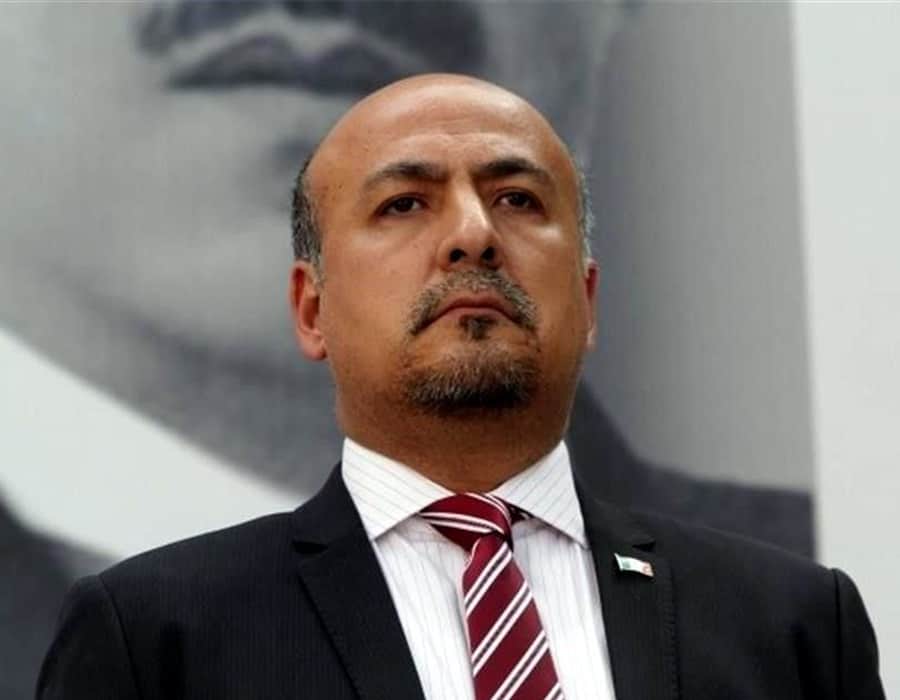
The same presentation indicates that Libre Abordo reached an agreement with Segalmex, the government agency for food production and distribution. “Segalmex receives instructions from the federal government of Mexico to continue with the humanitarian aid, aiming to benefit the people of Mexico and Venezuela,” the document reads. According to Libre Abordo’s version, Andrés Manuel López Obrador’s administration instructed Segalmex to sell 210,000 tons of corn to Libre Abordo, destined for Venezuela. The amount coincides with the operation that Libre Abordo carried out in June 2019 with the state-owned Corporación Venezolana de Comercio Exterior (Corpovex). Two contracts were signed to supply those tons of corn and 1,000 tankers of drinking water in exchange for two million barrels of oil ⸺a two hundred-million euro operation.
Another document from the electronic file obtained for this journalistic investigation adds up. In the search for clients willing to process the PDVSA oil that had been exchanged for food, in early 2020, Libre Abordo contacted Reliance, the Indian refinery. Apropos of the due diligence process initiated by the Asian company to certify its prospective new supplier, Libre Abordo submitted a letter dated December 16, 2019, with the letterhead of Segalmex, the agency that was to sell to this company the corn intended for Venezuela. “We hereby confirm that we have received instructions from the Mexican government to proceed with this deal,” reads the missive that bears the purported signature of Segalmex’s then head of Administration and Finance, René Gavira. “The corn will be distributed in three deliveries scheduled for the third week of January 2020, the third week of February and the third week of March.” Sources close to the former official, who left office in June last year tangled up in corruption accusations, assure that the signature on the letter is not Gavira’s and claim that it was forged by Leal and his collaborators.
Libre Abordo also submitted proof of a bank transfer of December 11, 2019 to Segalmex for 330.6 million pesos ($15 million), as an advance for the delivery of the 210,000 tons of corn of the initial operation. The company that made the payment was Consorcio Panamericano SA de CV, a Mexican company in which Leal’s grandmother is a partner along with alleged front men, who participated in other entities of the businessman. Libre Abordo assured in the emails sent to Reliance that Consorcio Panamericano granted them a “loan” to complete the transaction. When ask on this matter for this report, Segalmex answered that it “will not comment” on the alleged transaction.
Those initial two million barrels negotiated in June 2019 turned to be at least 30 million barrels of crude oil in shipments that sailed between November 2019 and May 2020. According to emails in the possession of EL PAÍS and Armando.info, Libre Abordo explained that the jump from two to 30 million barrels was due to the international fall in the price of crude oil, since the equivalence of the exchanged goods had changed to the detriment of the Venezuelan party. The Mexican company sought advice from law firms to complete the operations through bartering under the guise of “humanitarian aid.”
The transaction, which included corn and tanker trucks in exchange for Venezuelan crude oil, undertook to alleviate the misfortunes of the regime in Caracas. Pressured by the U.S. sanctions imposed on some of its top officials and agencies, such as the state oil company PDVSA and the Central Bank of Venezuela, the Maduro government was facing more and more difficulties to place its dwindling crude oil production in international markets and obtain foreign currency. A professed humanitarian swap seemed to provide a convincing enough façade for the transaction to pass Washington’s scrutiny.
Despite the schemes, in the end, the U.S. Department of the Treasury sanctioned Libre Abordo and Joaquín Leal for doing business with Venezuela, a measure announced a year ago, in June 2020. At that point, the Mexican FIU started an investigation to follow the trail of the 200 million euros. The investigation made little progress until last May 18, when the FIU filed a complaint to the Attorney General’s Office requesting the seizure of a hundred or so accounts of Leal and Libre Abordo, as confirmed in this investigation. However, to date, there has not been any official pronouncement about the alleged agreements with Segalmex.
Two testimonials sources assured the authors of this investigation that Maximiliano Reyes Zúñiga, the number two of the Mexican Foreign Ministry, enabled the approach between Leal and Segalmex in 2019. As these sources confirmed, the first contacts took place at a meeting in Monterrey, capital of the State of Nuevo León, with senior officials of the Venezuelan government, who visited Mexico and proposed to open a channel of institutional communication between the two administrations. That meeting was held shortly after the visit to Caracas of a group of Mexican businessmen, including José Adolfo Murat, Leal’s former partner. Then, based on the documentation obtained, there was a meeting with Omar Abou Nassif, brother of a businessman close to Venezuelan Vice President Delcy Rodríguez, who raised the possibility of using the Chihuahua branch of Industrias Lácteas Asturianas (ILA, producer of the Reny Picot brand) as a supplier in Mexico. Sources close to Segalmex confirmed this information.
In the course of this investigative series, of which this report is a part, Joaquín Leal and the Venezuelan government were requested to give their versions, but no request received a response.
The Administration of Andrés Manuel López Obrador, of the National Renewal Movement (Movimiento de Renovación Nacional – Morena), although leftist, has maintained an ambiguous position regarding the Venezuelan conflict since he came to power. He certainly avoided recognizing the opposition leader and president of the National Assembly, Juan Guaidó, as interim president, something that pleased Maduro, but at the same time he has helped to bring Venezuelan opponents out to give them asylum in Mexico. The relations of the Chavista government and the Venezuelan opposition with the Mexican diplomacy are close and frequent, to the point that Mexico is emerging as the prospective venue for an upcoming negotiation between both parties to seek a way out of the political and humanitarian crisis that has become chronic in the South American country. As to President López Obrador, who does not hold back his opinion on all kinds of matters at his morning conferences, has referred to Venezuela on very few occasions. Three days before the U.S. Treasury sanctioned the Mexican businessmen, he said that he would be willing to collaborate with humanitarian aid if the government of Caracas required it. “It (the Venezuelan government) has not made any request to us. But if it made a request pertaining a humanitarian need, we would act on it.”
Mexico did not need to have a leftist government to act as one of the apexes of a surreptitious trade scheme with the Chavista Venezuela. Already in 2016, under the administration of Enrique Peña Nieto, of the once hegemonic Institutional Revolutionary Party (Partido Revolucionario Institucional – PRI), businessmen close to Nicolás Maduro, such as Alex Saab, found in Mexico the suppliers to buy tons of food that were sent to Venezuela in the CLAP boxes. In 2018, the then authorities of the Office of Mexico’s Attorney General opened an investigation against that business —virtually on the eve of the elections won by López Obrador— for finding evidence of poor quality products and overpricing in the shipments. However, the case resulted in only small fines for the companies involved.
But the potential involvement of a government entity and the fact that a senior Foreign Affairs official, Maximiliano Reyes Zúñiga, was aware of –or perhaps even promoted- the business scheme, would assign an unprecedented level of commitment by the Mexican government.
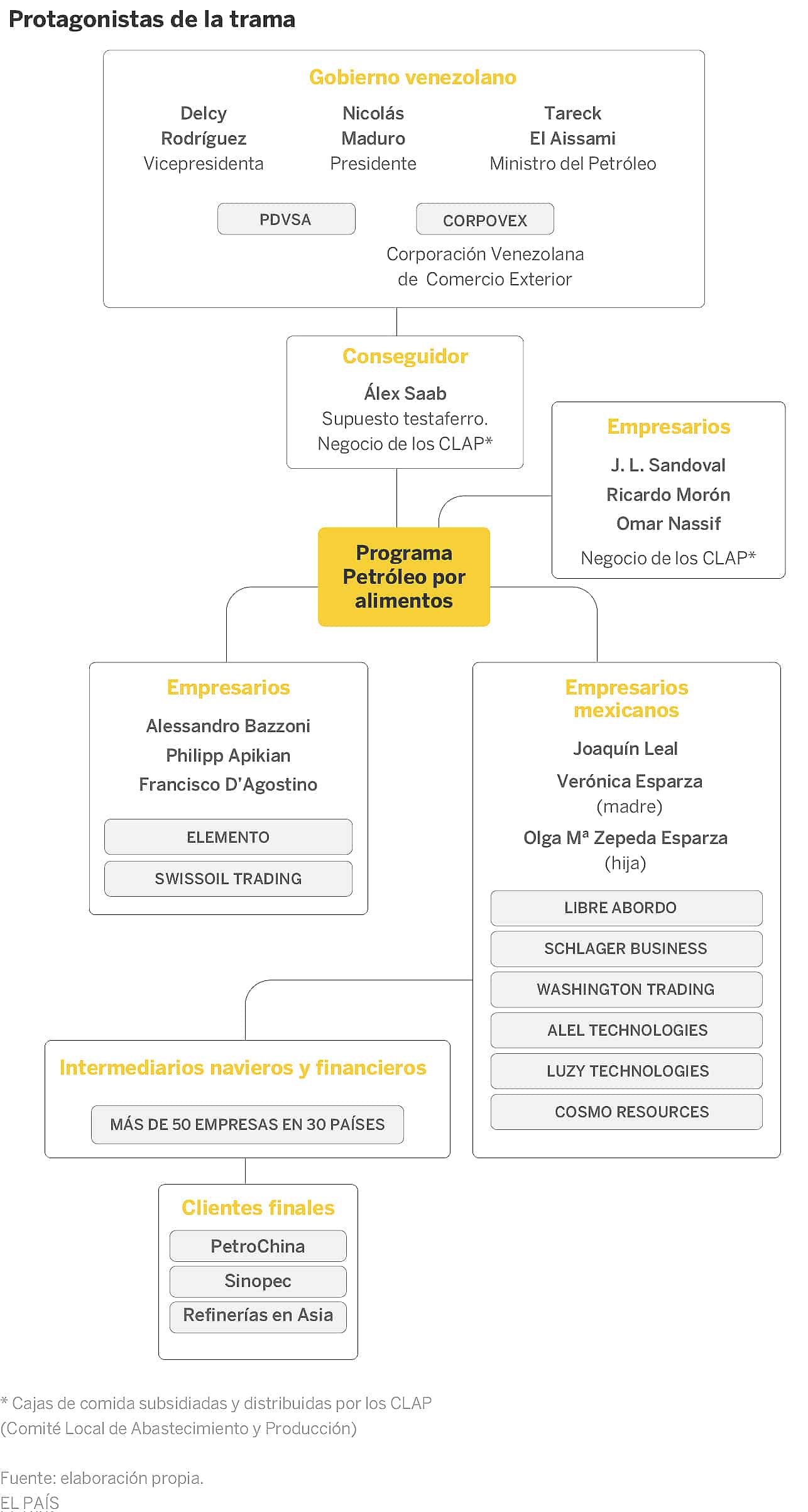
Even though no other evidence has been found to confirm the link with Segalmex, there is no doubt about the relationship between Joaquín Leal —the young entrepreneur who took over the reins of the circuit from Mexico to evade international sanctions against the Chavista regime— and the number two of the Mexican Foreign Ministry, the Undersecretary (Vice Minister) of Foreign Affairs for Latin America and the Caribbean, Maximiliano Reyes Zúñiga. Leal and Reyes met at least twice in two restaurants in Mexico City before the deal between company Libre Abordo and Corpovex was closed, as the reporters confirmed with three different sources.
Those meetings set a public precedent pertaining the ties between Leal and Reyes, due to a column by Carlos Loret de Mola in the Mexico City newspaper, El Universal. The influential Mexican journalist brought into the open a letter, dated June 20, 2019, less than a week after the contracts between Libre Abordo and Corpovex were signed. The letter was to the attention of the Venezuelan government, where a Venezuelan, Haymel Brito Martínez, appears as a member of the Mexican delegation to the 49th General Assembly of the Organization of American States (OAS), held in those days in Medellín, Colombia. Haymel Brito was the only participant of the Mexican delegation headed by Reyes, who did not hold a high diplomatic position. In his column, Loret de Mola described Brito as “an influential woman in the Mexican Foreign Ministry” and wondered how it was possible that a diplomatic official “representing two countries” simultaneously, Mexico and the United Arab Emirates, could have been born “in another country,” Venezuela. After the spreading of the letter, the Ministry of Foreign Affairs (MFA) decided to leave Brito out of the delegation. Facing at least two requests for information, the Foreign Ministry denied that the woman worked at the Undersecretariat for Latin America. Nor does she appear in the directory as a fee-for-service employee of that office.
Based on her curriculum vitae, Brito Martínez has been a representative of Fedecámaras – Venezuela’s main business union –, analyst of the International Organization of Employers, intern at the United Nations, and has worked for the office of the ambassador of the United Arab Emirates in Mexico. It was during that stage of service for the Arab country, in late 2018, when the first meeting between Brito and Reyes took place, as at least two sources affirmed.
During the transition period from the government of Enrique Peña Nieto to that of Andrés Manuel López Obrador, in September 2018, the former mayor of Mexico City, Marcelo Ebrard, visited the UAE Embassy, as appointed foreign ministry. He was accompanied by part of his team, including the current undersecretary for Latin America and the Caribbean, Reyes Zúñiga. Soon after, Reyes and Brito began to actively interact on the social media and traveled together to different places, like Panama City, Buenos Aires and Barcelona, as this investigation has been able to verify.
Haymel Brito’s personal relationship with Joaquín Leal is also a fact, as evidenced by photos and messages on social media of her together with the closest entourage of the Mexican businessman. In July 2019, Brito began working as a director of Institutional Relations for Hábitos Luzy, the Mexican subsidiary of Luzy Technologies, one of the companies that were blacklisted by the U.S. Department of the Treasury along with Libre Abordo, and also part of Leal’s portfolio. The company specialized in health and food, and its most noticeable product was a mobile application to provide medical advice. From her position at Luzy, Brito managed the sale of medicines and medical equipment to the Panamanian government, directly supported by the Mexican Embassy in the Central American country.
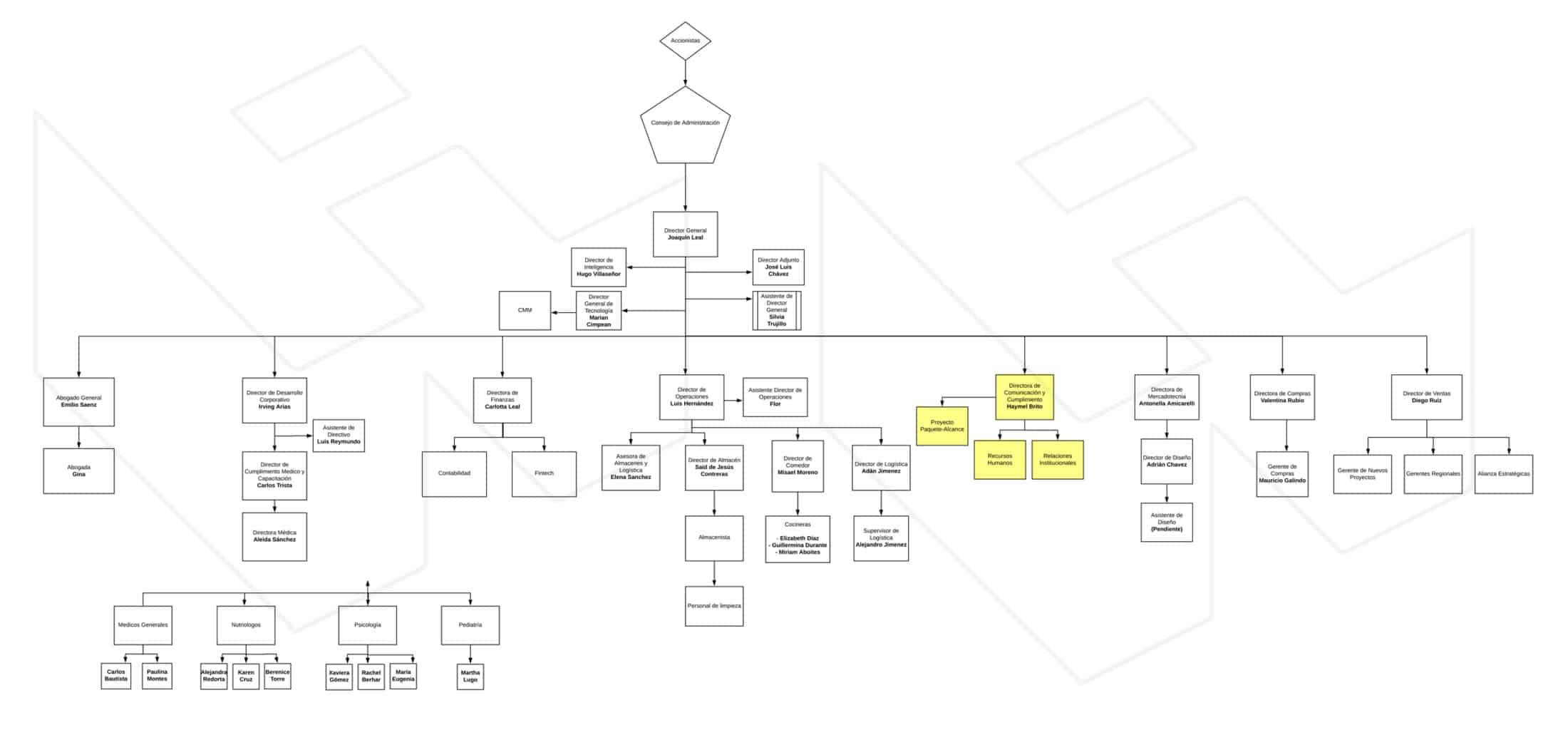
On December 10, 2019, Maximiliano Reyes Zúñiga traveled to Buenos Aires to represent Mexico at the inauguration of Argentine President Alberto Fernández. According to transparency records, on that trip, the undersecretary made a stop in Panama to “hold meetings at the Mexican Embassy.” That same day, Brito shared on her social media pages that she was in Panama. Based on the emails, she visited the Mexican Embassy during that trip to discuss trade agreements between Luzy and the Panamanian government. In late 2019, the Mexican ambassador to Panama, Luis Manuel López Moreno, began to report his progress on behalf of the company to the Venezuelan woman, whom he called “master.” “We will meet before Friday to talk about the [Luzy] application. I will let you know as soon as I have an outcome,” the ambassador wrote to Brito in an email on December 16 about a meeting he had with a businessman, just a week after the visit. “Very well, ambassador,” she replied.
In a written response for this investigation, Venezuelan Haymel Brito assures that her “external advisory services” to Hábitos Luzy concluded in 2019 “and that had nothing to do with Venezuela or affairs in that country (...) I have no relationship with any Mexican government institution.” She adds that she learned about Libre Abordo through the publications of EL PAÍS newspaper in 2020, “when I was no longer there” [at Luzy].
The shadow of the Foreign Ministry over the Venezuelan oil scheme also extends to the Mexican Embassy in Caracas, especially with Reyes’ right-hand man in that delegation —Rodrigo Benedith Reyes. Both officials have known each other for at least a decade, when the now deputy foreign minister was a legislator in the Mexico City Assembly in 2009 for the Democratic Revolution Party (Partido de la Revolución Democrática – PRD, a leftist political party from which López Obrador and Morena broke away in September 2012) and the other was an advisor to the legislature. They also worked together as area directors in the Miguel Hidalgo borough (municipality) of Mexico City from 2012 to 2013. In September 2019, Benedith held the position of director of Urban Services of the Mayor’s Office of Azcapotzalco – another metropolitan municipality – when he was appointed, without any experience in the diplomatic sector, to be in charge of the economic cooperation and promotion of the Mexican representation in Venezuela. His name appears in the emails of Leal’s circle, who also boasted of having “contacts in Embassies and consulates.”
In an email that Joaquín Leal sent to his team on September 12, 2019, when the official had just arrived in office, the businessman asks them to send Benedith some cards and a contract.
The name of the Mexican official also appears in other communications. As in one dated April 1, 2020, in which the director of Libre Abordo, Olga María Zepeda Esparza, sends an email to the Mexican Embassy in Caracas informing his agreements with PDVSA. “We would like to give you some context related to our work as a Mexican company that provides humanitarian aid in Venezuela in exchange for oil,” reads the message, addressed to Benedith Reyes.
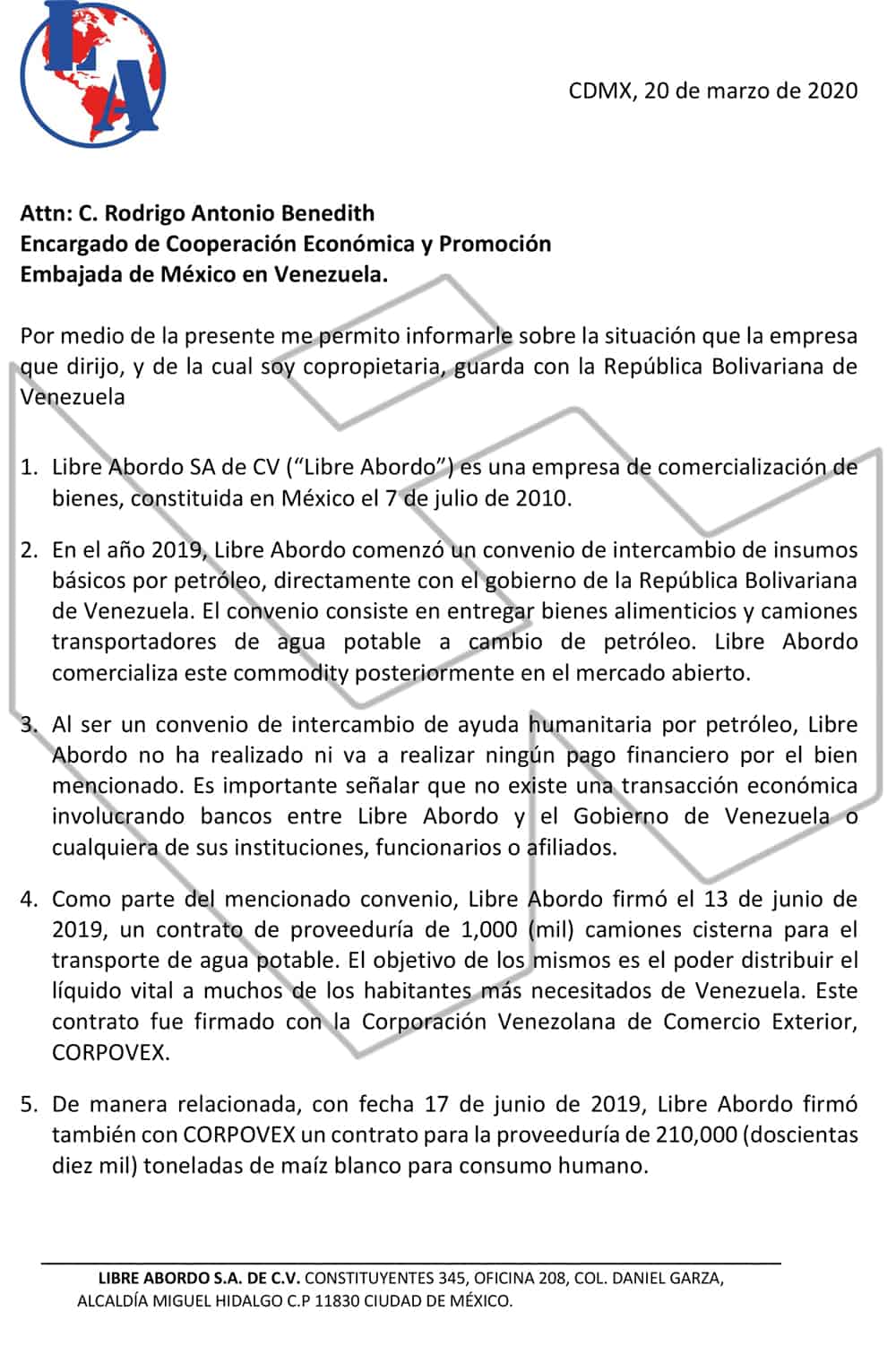
For this investigation, the reporters sent a detailed questionnaire to Maximiliano Reyes Zúñiga with ten questions on each of these specific issues. The undersecretary agreed to answer but with a general statement of nine paragraphs on the powers and objectives of his office, without confirming or denying anything.
“As undersecretary for Latin America and the Caribbean, my responsibility is to be in permanent contact with all the governments of the region, based on the criteria set forth by the Mexican Constitution, which have always been publicly stated. Our principle is the utmost respect for the sovereignty of each country, and as far as possible, we are always willing to cooperate and collaborate in social, economic, cultural, humanitarian and commercial matters. And in this regard, we do not make exceptions with any government nor do we submit ourselves to the foreign policy of any country,” assures Reyes in his answer, who claims that he works “in favor of a solid and fluid dialogue with the private sector to improve the economic and commercial dynamics of our country in the region.”
In this sense, Reyes assures that for his Undersecretariat (ministry division) “it is essential to support every Mexican company, regardless of its name, regardless of its political or partisan position. We assume that the businessmen who approach us do so in good faith and wish to have better economic ties in the region, based on a fundamental principle: win-win-win (Mexico wins, the country concerned wins, the businessman wins). In light of this, we have productive relations with many Mexican and foreign companies that fortunately see us as allies to facilitate their expansion, in the same way that other governments do with their companies.” Regarding the U.S. sanctions imposed on Libre Abordo and Leal, Reyes said, “Our line is public. We will never agree to solve anything through force or coercion, nor through sanctions. Our position is public and evident. We have always voted the same way in international organizations.”
Finally, regarding him knowing Joaquín Leal, he affirms that he “knew” the businessman together with “a group of Mexican and foreign investors in the energy sector, with whom I have had no contact for several months, before the sanctions were made public. My talks with them where about the same as with many other economic and business environments.”
* This is the second installment of the series “Mexican Bypass against the Sanctions” that Armando.info produced and publishes jointly with the newspaper El País of Madrid.
When Vice President Delcy Rodríguez turned to a group of Mexican friends and partners to lessen the new electricity emergency in Venezuela, she laid the foundation stone of a shortcut through which Chavismo and its commercial allies have dodged the sanctions imposed by Washington on PDVSA’s exports of crude oil. Since then, with Alex Saab, Joaquín Leal and Alessandro Bazzoni as key figures, the circuit has spread to some thirty countries to trade other Venezuelan commodities. This is part of the revelations of this joint investigative series between the newspaper El País and Armando.info, developed from a leak of thousands of documents.
The business structure that Alex Saab had registered in Turkey—revealed in 2018 in an article by Armando.info—was merely a false start for his plans to export Venezuelan coal. Almost simultaneously, the Colombian merchant made contact with his Mexican counterpart, Joaquín Leal, to plot a network that would not only market crude oil from Venezuelan state oil company PDVSA, as part of a maneuver to bypass the sanctions imposed by Washington, but would also take charge of a scheme to export coal from the mines of Zulia, in western Venezuela. The dirty play allowed that thousands of tons, valued in millions of dollars, ended up in ports in Mexico and Central America.
As part of their business network based in Mexico, with one foot in Dubai, the two traders devised a way to replace the operation of the large international credit card franchises if they were to abandon the Venezuelan market because of Washington’s sanctions. The developed electronic payment system, “Paquete Alcance,” aimed to get hundreds of millions of dollars in remittances sent by expatriates and use them to finance purchases at CLAP stores.
Scions of different lineages of tycoons in Venezuela, Francisco D’Agostino and Eduardo Cisneros are non-blood relatives. They were also partners for a short time in Elemento Oil & Gas Ltd, a Malta-based company, over which the young Cisneros eventually took full ownership. Elemento was a protagonist in the secret network of Venezuelan crude oil marketing that Joaquín Leal activated from Mexico. However, when it came to imposing sanctions, Washington penalized D’Agostino only… Why?
Through a company registered in Mexico – Consorcio Panamericano de Exportación – with no known trajectory or experience, Joaquín Leal made a daring proposal to the Venezuelan Guyana Corporation to “reactivate” the aluminum industry, paralyzed after March 2019 blackout. The business proposed to pay the power supply of state-owned companies in exchange for payment-in-kind with the metal.
They lose their freedom as soon as they set foot on any Trinidadian beach, and their “original sin” is an alleged debt that these women can only pay by becoming sexual merchandise. They are tamed through a prior process of torture, rotation and terror, until they lose the urge to escape. The growth of these human trafficking networks is so evident that regional and parliamentary reports admit that the complicity of the island’s justice system in this machinery of deceit and violence multiplies the number of victims.